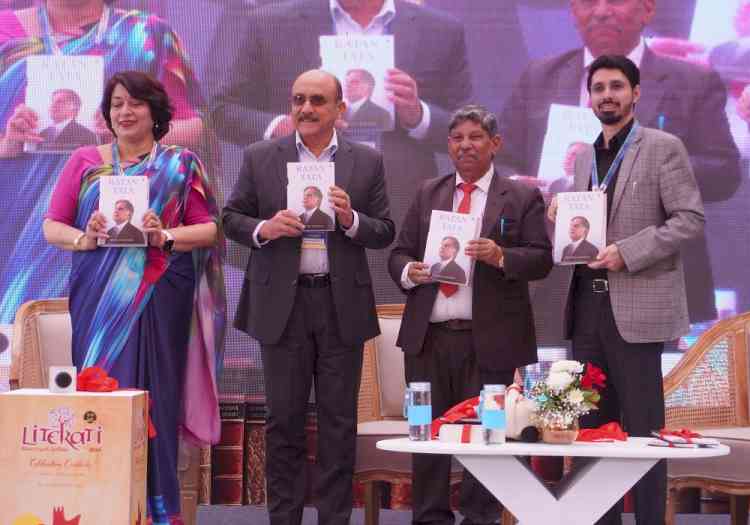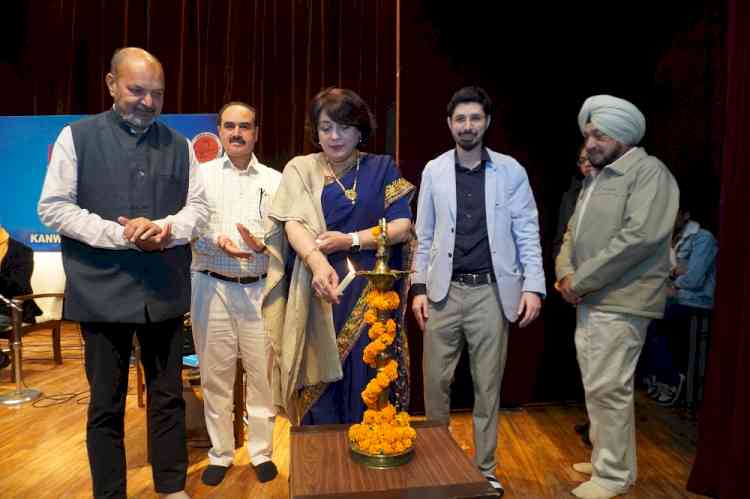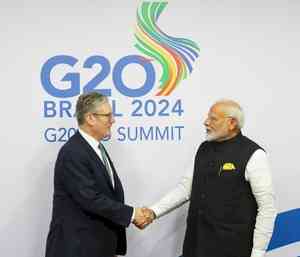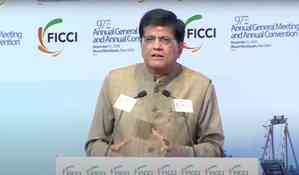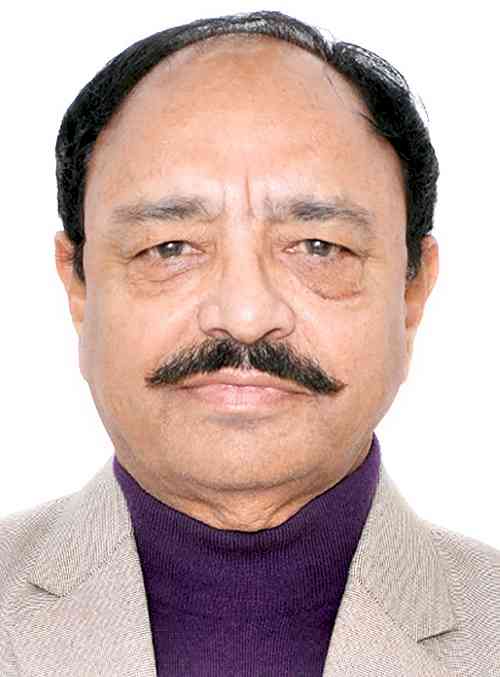Moderate Muslims must raise voice against terrorism in name of Islam: Pakistani author Shahbaz Taseer
He says it had to be a memoir of faith...Despite the fact that he was abducted by a Taliban-affiliated group and kept in captivity for five years in Afghanistan. Even when every inch of his skin bore witness to his abductors' hatred.
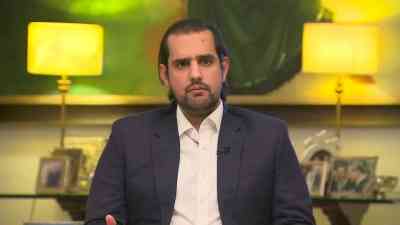
SUKANT DEEPAK
New Delhi, May 30 (IANS) He says it had to be a memoir of faith...Despite the fact that he was abducted by a Taliban-affiliated group and kept in captivity for five years in Afghanistan. Even when every inch of his skin bore witness to his abductors' hatred.
Pakistani author Shahbaz Taseer, whose book 'Lost to the World: A Memoir of Faith, Family, and Five Years in Terrorist Captivity' (Penguin) recently hit the stands, stresses that while he is a Muslim owing to the family and country he was born in, he did not see how practising or devout he was before the life-altering incident. "Still, it is the only religion that I am affiliated with. When I was kidnapped, I discovered my faith. When you have no one - no human being, privilege, and power on earth that can help you, it is only spirituality that you can rely on. And for me, it was Allah," he tells IANS.
Son of assassinated Governor of Punjab (Pakistan), Salman Taseer, Shahbaz himself was not involved in politics, but he was a public figure who represented a more tolerant, internationally connected Pakistan that the militant group IMU condemned.
What followed his kidnapping was nearly five years of torture and constant peril as Taseer was held captive in the ungoverned reaches of Pakistan and Afghanistan, his fate subject to the unpredictable whims and machinations of terrorists. 'Lost to the World' is his memoir of that time - a story of extraordinary sorrow but also of empathy and faith. It is also a tale about resilience.
Taseer countered his captors' narrative of a holy war by immersing himself in the Quran in search of hope and a means to see his own humanity under even the most inhumane conditions, and ultimately to find a way back to his family.
Stressing that it is high time that moderate Muslims raise their voice against terrorism in the name of Islam, Taseer says, "My father was a moderate Muslim, and was shot 29 times just for his opinion. Imagine, in a country of 250 million people, not one person was willing to say a word. So, I do believe moderate Muslims across the world, and not just in Pakistan need to speak up and raise their voices against draconian laws that extremists propagate as Islamic laws; but have nothing to do with Islam."
Recalling his days in captivity, the author says he asked for death more times than he probably prayed for anything else. Adding that explaining the physical pain and lending words to it in the book was easy, but the dehumanizing aspect of it and the intense loneliness he felt just cannot be defined. "There were times when I held the blade close to my wrists, but I just could not do it, it felt like the most cowardly act possible, despite what I was enduring. It would be unbecoming of Salman Taseer's son, who gave up his life for his convictions. Also, I recalled this beautiful line -- 'To give up hope is to give up on the idea of God.' This held me back... In such a dark and lonely place, a miracle seemed like the only thing to save me. Why would I give up on that right then? I started seeing those small miracles'."
Taseer says the point when he moved in with his kidnapper's family, he found pieces of humanity there. "He was a cruel man, I would call him godless, but in his family with his children, I found my happiness, a reason to smile again."
In the book, he writes about Ayah, the kidnapper's mother-in-law who defied the purdah, and shouted for the torture to stop as Taseer was in her house. She gave him access to a shower once a week, a toothbrush, toothpaste, and soap.
"I often wonder how lucky I am to be of sane mind, body, and soul. I don't know how many people have been tortured and survived. As human beings, there is a thin line between our sanity and insanity. Our mind is a very volatile organ and can be broken very quickly. The problem with breaking the mind is, there are very few cases where it has been put back together. In many ways, she took the first step to ensure that if I ever made it home, I would go back a sane man."
Taseer also recalls Ayah, her children, and her grandchildren being murdered in cold blood. "That is something I can never forget. But you know, before leaving, I looked at one of my kidnappers and told him that while he did everything to me in God's name, it is His name that I forgive him. I said this because I did not want to be a prisoner anymore."
And how was it adjusting back to life after his release? The author says it took him a long time to understand what 'normal' was... "My 'normal' during captivity was waking up at ungodly hours, praying five times a day, no food or toilet sometimes. Even now, sometimes, when I want to go to the restroom, I am looking to ask someone for permission. I was so used to sleeping on a hard surface that it was tough to be on my bed. I had to get a bamboo sheet put on my mattress so that it felt like a little bit of the floor. Every time I would hear an aircraft, I would look for cover..," concludes Taseer who wants to write a book on his father next.
(Sukant Deepak can be reached at [email protected])


 IANS
IANS 
